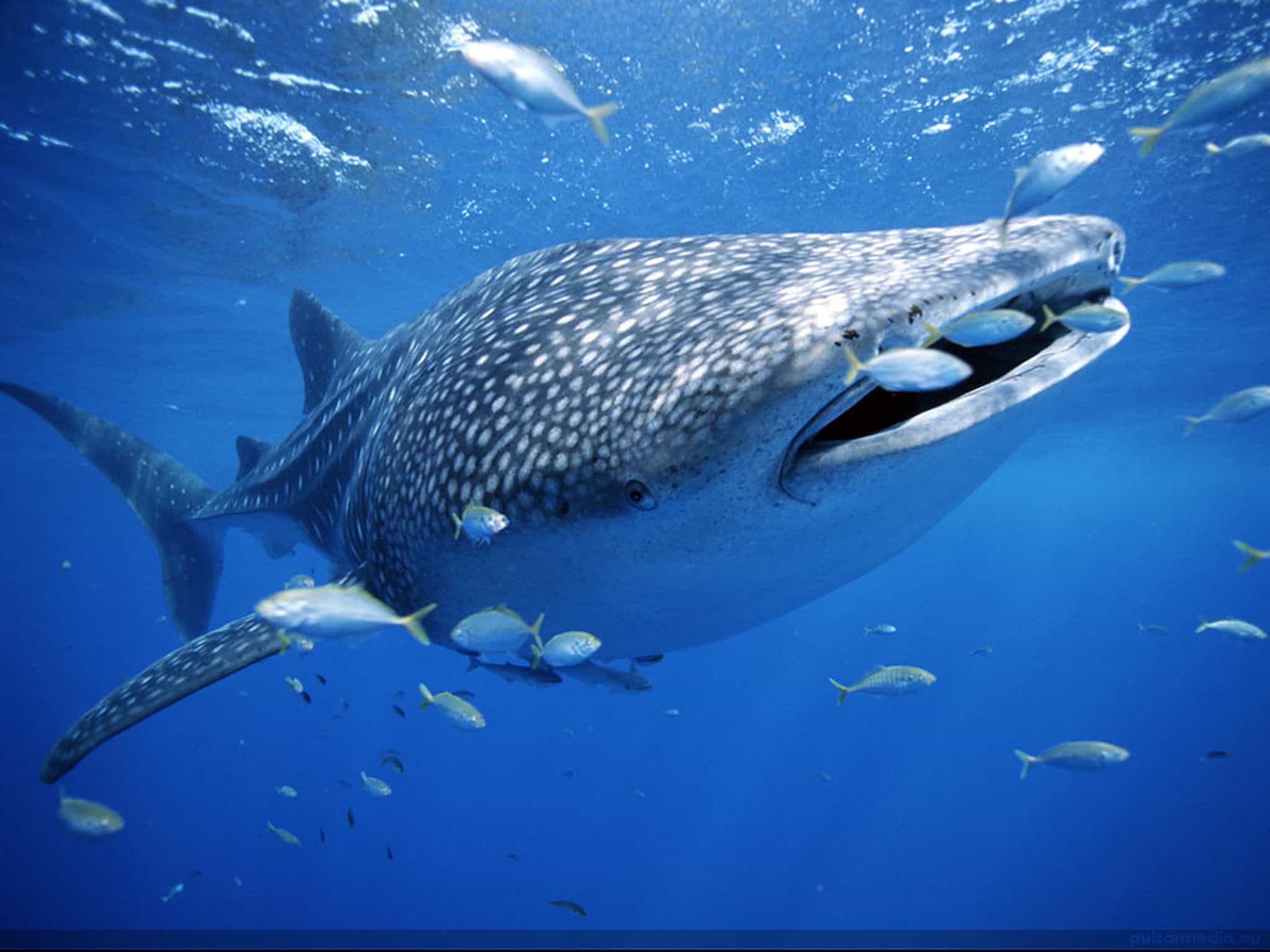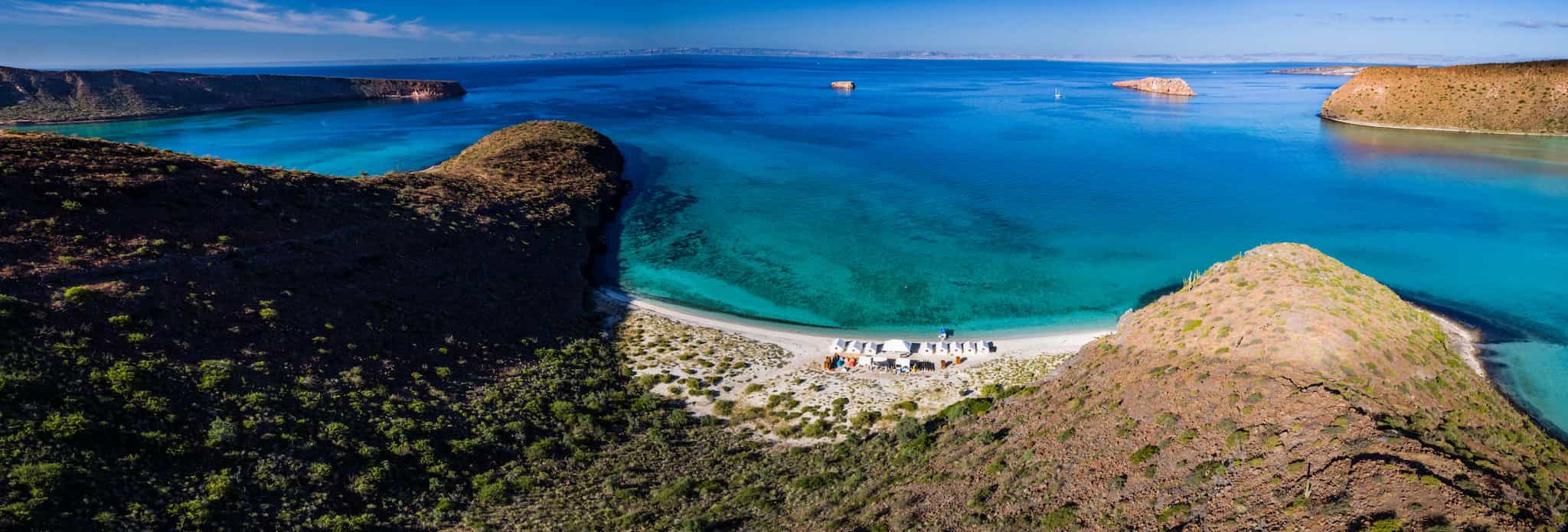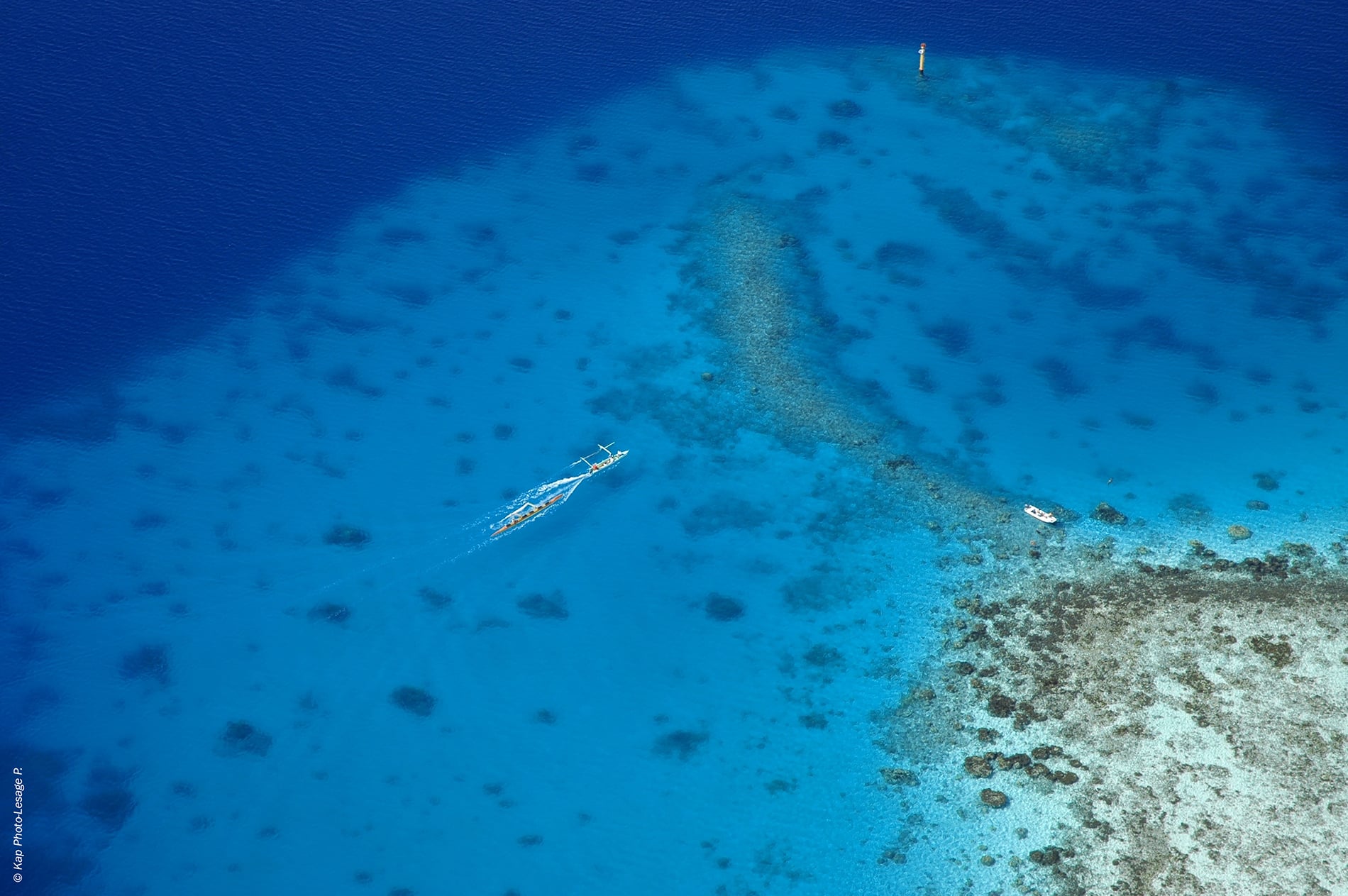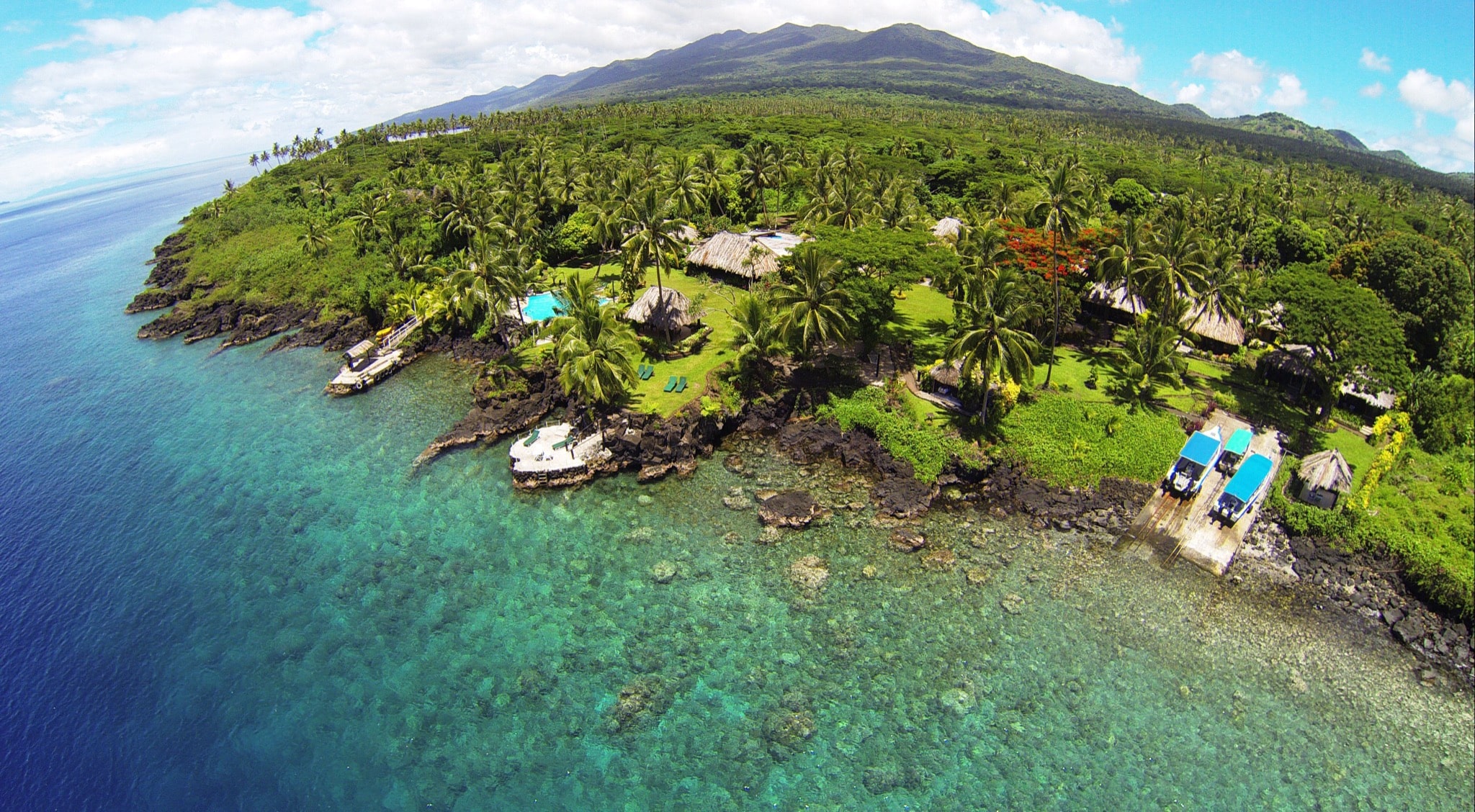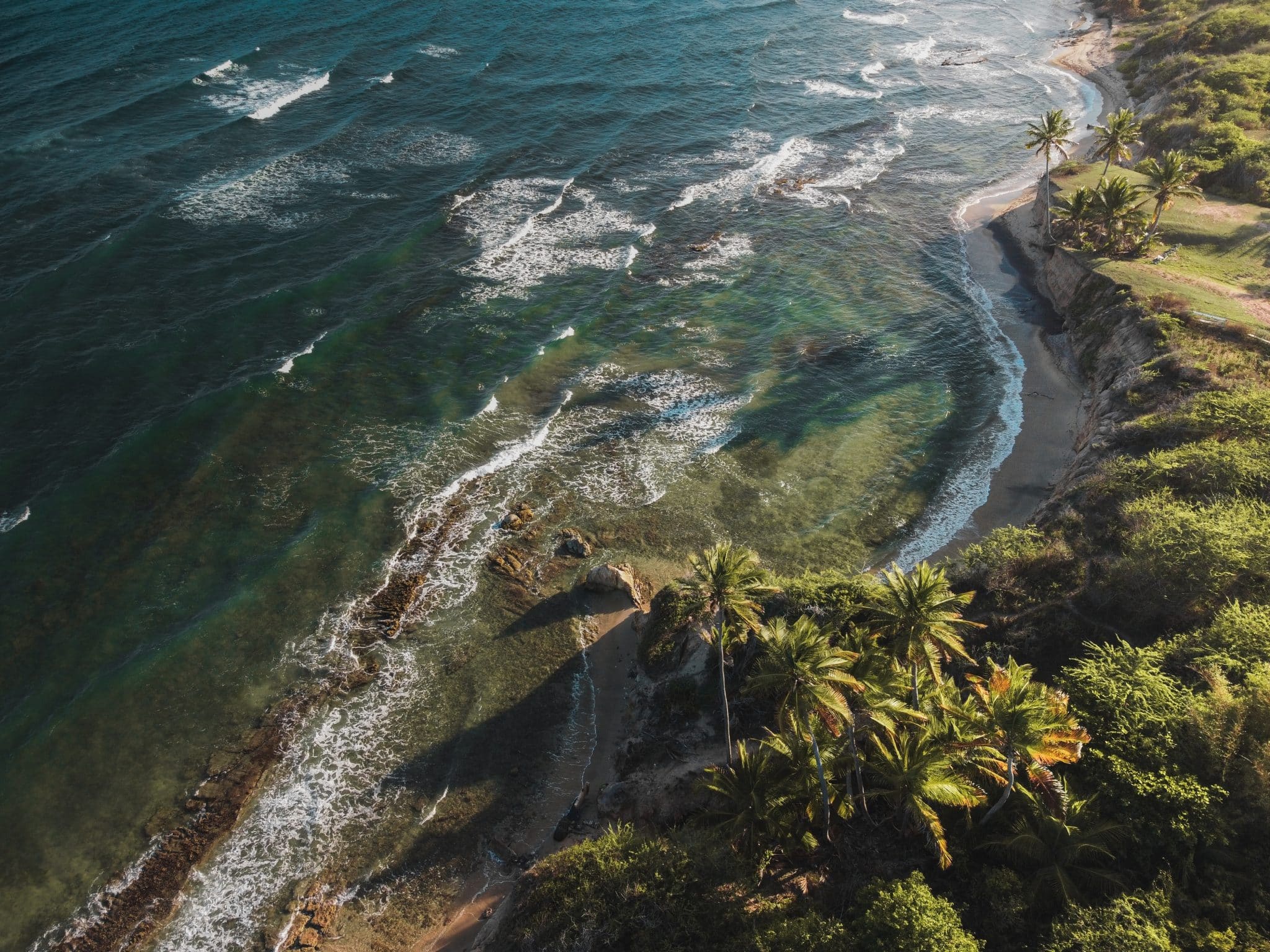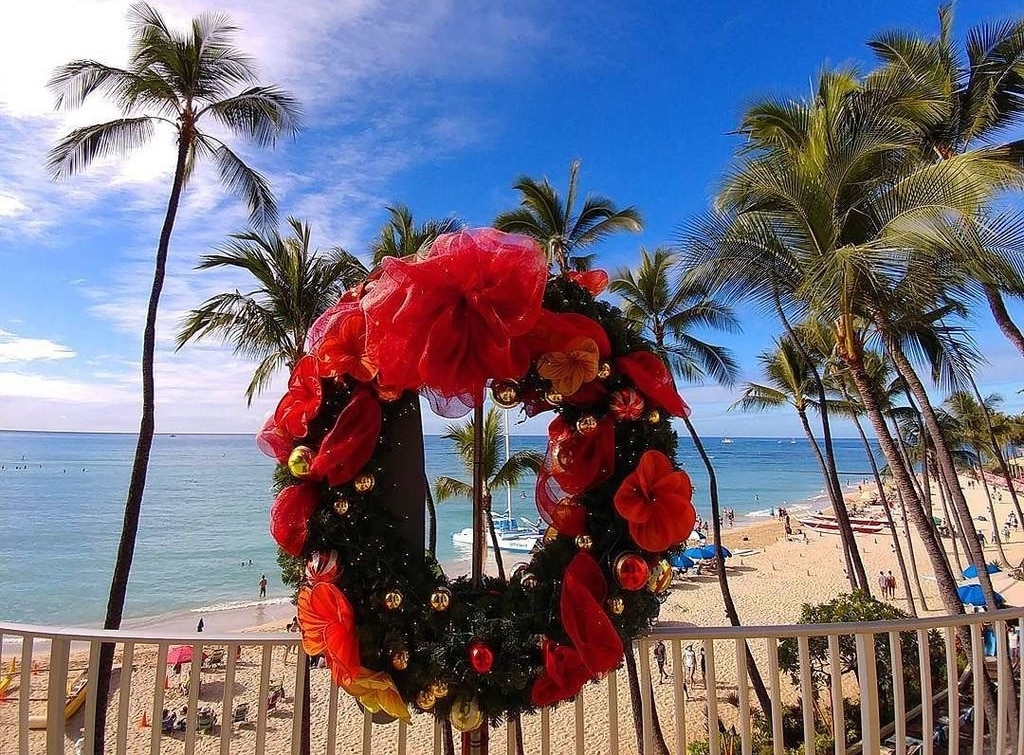The mere mention conjures romantic visions of blue lagoons, emerald peaks and bronzed bodies with flowers in the hair. These are The Islands of Tahiti, a collection of green jewels in the blue Pacific where volcanic peaks rise above bright lagoons, and surf washed coral atolls are filled with colorful tropical fish.
1 Blossoms
Bright hued tropical flowers have long been one of the most iconic symbols of Tahitian culture. Blossoms are woven into necklaces and tiara-like crowns, while both men and women wear single flowers behind the ear. When worn on the right, it symbolizes that you are seeking romance, while a shift to the left side indicates that you are already spoken for.
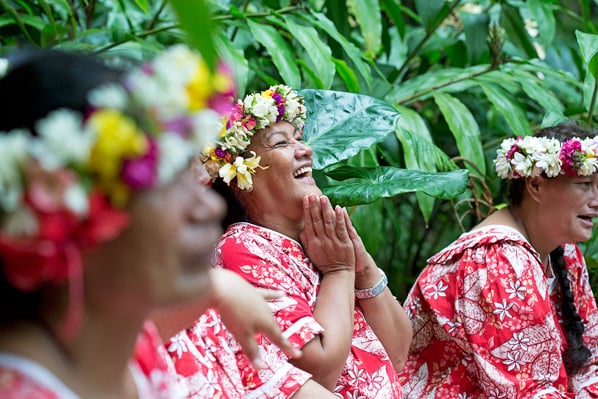
2 Towering Peaks
Green clad volcanic peaks dominate the landmarks on the major islands of Tahiti. The view of craggy Mount Otemanu from across Bora Bora’s lagoon is one of the most iconic images from the South Pacific. Some peaks can be summited by dedicated hikers, but most visitors opt for overlooks half way up the slopes that can be reached by road, and provide sweeping views of island and ocean.
3 Waves
Neophytes and champions alike descend on Tahiti when the surf is up. On the island of Tahiti, long Pacific swells create rider friendly breaks at sites such as Papara, Papenoo and Taapuna. More challenging are the big swells that break on the southwestern coast at Teahupoo. In peak season, these expert-only waves crest to heights of 25 feet, and the world’s best riders gather to compete in the Billabong Pro surf competition.
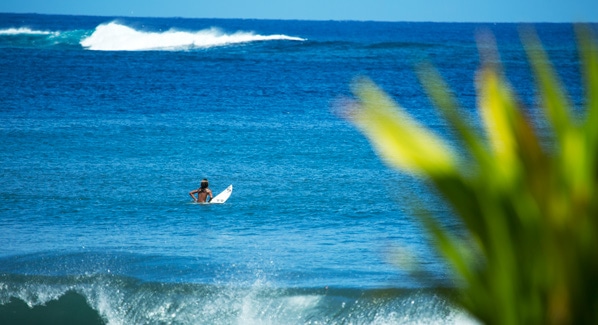
4 Singing
In traditional Polynesian culture, legends and histories were often passed down through song. With the arrival of Europeans, these traditional melodies melded with religious hymns to create the a cappella styles known as himene ru’au and himene tarava, which mix soaring solo performances with complex choir harmonies and vocal percussion. These styles, first brought to the world music scene by the performers of the Tahitian Choir, can be heard at festivals and worship services across the islands.
5 Tattoos
Body art has long been considered a symbol of beauty in Polynesian culture. In ancient times, woven tatua patterns were applied as a rite of passage to adulthood. The practice was banned by Christian missionaries in the 1800s, but has since enjoyed a revival. The intricate patterns of traditional Tahitian designs now inspire tattoo artists around the world.
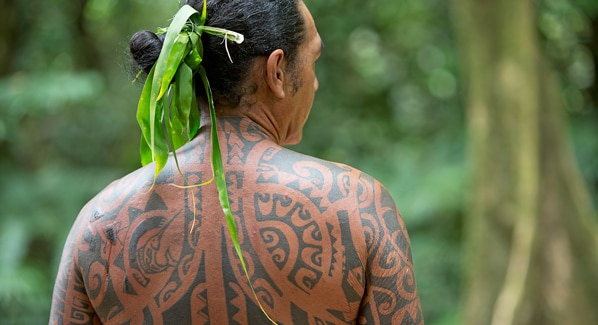
6 Waterfalls
When the rains that fall on the soaring volcanic peaks of the major islands of Tahiti tumble towards the sea they create thundering cascades and wispy waterfalls. Some are hidden deep in the jungle, reachable only by strenuous hikes or four-wheel-drive excursions. Others are just a short walk away from towns and roadways. Among the most spectacular is towering Fautaua Falls on the island of Tahiti, where waters plunge more than 400 feet over a cliff in a remote hanging valley. Also popular is Vaipahi Falls, which is a classic jungle clad cascade that feeds a cool pool ideal for swimming.
7 Overwater Bungalows
Few images from The Islands of Tahiti are as compelling as the vision of a thatch roofed bungalow set on pilings above the sparking turquoise waters of a lagoon. Overwater bungalows were first introduced to the world in the 1960’s on the island of Moorea. In the decades since, a number of these idyllic structures have spread to other islands in the group, gaining features such as glass floor viewing panels, decks with private plunge pools and hammocks suspended over the water.
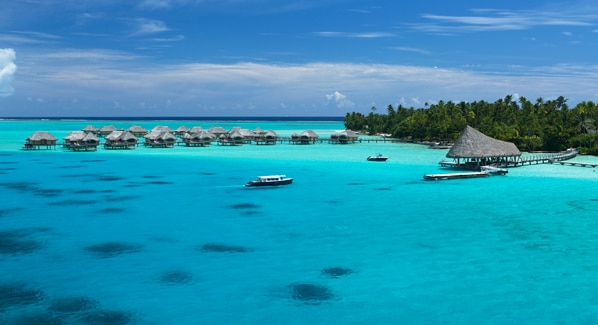
8 Heiva
The biggest celebration in The Islands of Tahiti is a month-long festival originally inspired by French Bastille Day observances. Today, Heiva is a showcase of traditional island culture that includes lavish dance performances, singing competitions, outrigger canoe races and displays of physical prowess that include stone lifting, fruit carrying races, coconut cracking, and palm tree climbing. The festival also includes arts and crafts, with displays that feature works from across French Polynesia.
9 Snorkeling
Islands such as Tahiti, Bora Bora and Moorea are ringed in reefs that enclose clear water lagoons, while atolls such as Rangiroa and Manihi enclose expansive coral gardens. This creates ideal conditions for snorkelers, who can immerse in shallow, sheltered waters to discover colorful corals and abundant fish life. Reefs often begin right from resort beaches or at the steps of an overwater bungalow, while more sites can be reached by relaxing boat rides across lagoon waters.
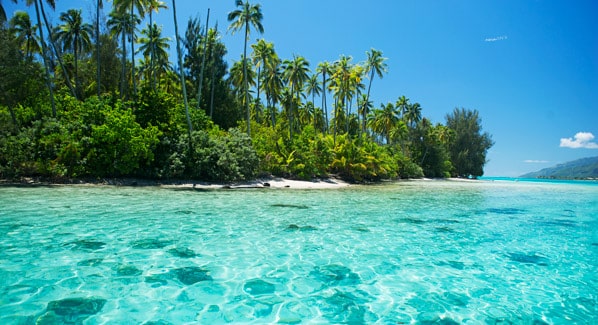
10 French Connections
The Islands of Tahiti have long been associated with France, first as an overseas territory, and more recently with the added autonomy of an affiliated overseas country. This relationship has created a blended and cosmopolitan island culture, where ancient Polynesian traditions of hospitality and reverence for nature combine with a French appreciation for the good life. The result is a people who are among the happiest and most welcoming in the world.


